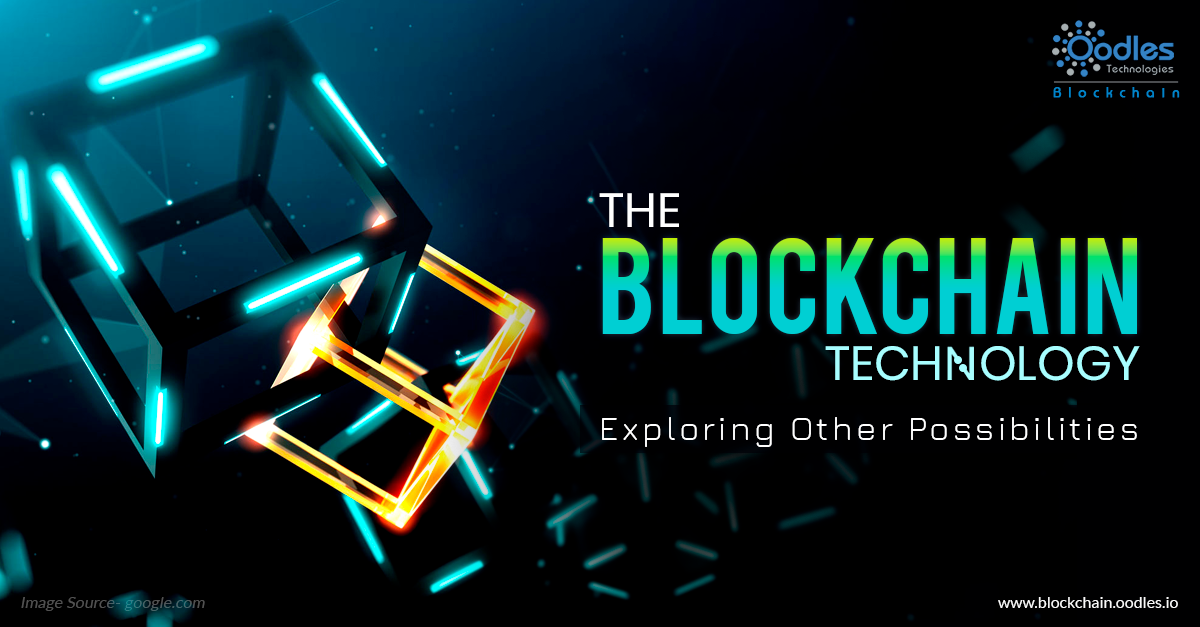-
A blockchain mainly refers to a distributed database (ledger) of records. In other words, a public ledger of digital events or transactions executed and dispersed among participants (parties). Each transaction happening in the public ledger is verified by the concord of a majority of the participating parties in the system. And, once written, information cannot be altered or erased. The blockchain keeps a verifiable record of every single transaction being made or ever made. In a nutshell, it can be easy to steal candy from a candy jar, kept in a private place than stealing candy from a jar kept in a marketplace, which is being observed by hundreds of thousands of people. So, now let's explore blockchain technology and know how it enhances numerous industries and their cumbersome processes.
Bitcoin happens to be the most popular example of blockchain technology. Also, it is the most controversial one since it has come to light that it enables a multi-billion-dollar global market of unverified transactions having no governmental control. Hence, it has to face a number of regulatory compliance involving financial institutions and national governments.
The Blockchain Technology: What Lies Beyond Cryptocurrencies
However, blockchain technology itself is non-controversial. It has been working flawlessly over the past few years. In fact, it is being applied to both financial and non-financial world applications. Last year, the doyen of Silicon Valley's capitalists Marc Andreessen addressed the blockchain distributed consensus model as one of the significant inventions since the rise of the internet.
The existing digital economy world solely relies on the reliance on a certain trusted and secured figure (authority). In fact, our all online transactions depend on trusting some sort of authority to tell us the truth- it can be an email customer service provider letting us know that the email has been successfully sent; it can be a social network like Facebook telling us that our posts pertaining to our life achievements have been dispersed only with our friends, or it can be a certification authority to tell us that a particular digital certificate is reliable. The concern is that we are living our life precariously in this digital world by depending on a third party (entity) for the privacy and security of our digital assets. The fact that arises here is that these third-party sources can be manipulated, hacked, or compromised.
This is where the blockchain technology comes into play. Disruptive technology has the potential to revitalize and revolutionize the digital landscape by empowering a distributed ledger (consensus). In this ledger, each and every online transaction, past and present, that involves digital assets can be verified at any time, anywhere in the future. On top of that, it does not compromise the privacy of the concerned digital assets and parties. The distributed ledger and its trait of being anonymous are two of its important characteristics.
Smart Contracts:
The benefits of Blockchain technology surpass the regulatory compliance and technical complications. One of the key emerging use cases of blockchain technology is "smart contracts". Smart contracts are computer programs. They can automatically perform the terms of a contract. When its pre-configured terms among participants are met then it can automatically make payments to the parties involved in a contractual agreement in a more transparent way.
Blockchain technology is finding applications in a wide range of areas—both financial and non-financial :
Banks and financial institutions don't see blockchain technology as a danger or threat to conventional business models. In fact, some of the renowned banks are looking forward to possibilities in this area by performing continuous research on innovative blockchain applications.
On the other hand, non-financial application options are countless. In the blockchain, we can even imagine putting proof of the existence of all legal documents, royalty payments in the music industry, health records, notaries, private securities, marriage licenses, and more. By keeping the fingerprint of the digital asset stored instead of storing the digital assets, the privacy goal or anonymity can be achieved.

Our Offices
INDIA
Emaar Digital Greens, Sector 61,
Gurugram, Haryana
122011.
Welldone Tech Park,
Sector 48, Sohna road,
Gurugram, Haryana
122018.














